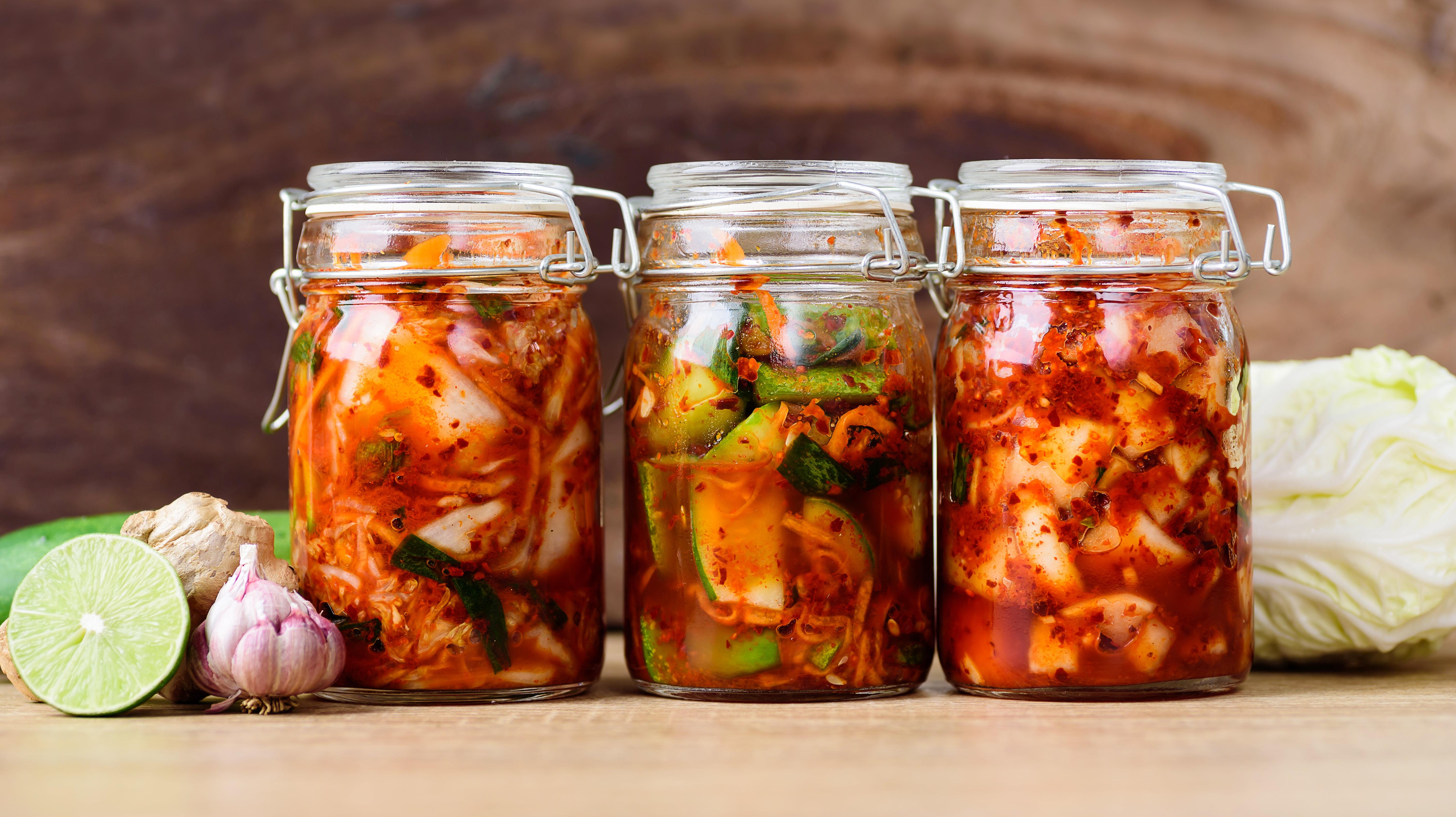Why Kimchi Should Never Be Stored At Room Temperature
Kimchi is fermented, which means it's preserved, but that doesn't mean it's shelf stable.
I grew up eating kimchi nearly every day, which means it's a fixture in my refrigerator. Storing it in the fridge for me is a no-brainer, but it might not seems as obvious to everyone. Even though kimchi is a preserved product by way of natural fermentation, that doesn't mean it's a good idea to keep it at room temperature. And not necessarily because it will spoil quickly, but because disaster can strike if you're not careful.
What happens during the kimchi fermentation process
Kimchi gets its acidic qualities from fermentation that occurs during its initial aging process. The traditional version that you're probably familiar with, made with cabbage (aka baechu kimchi), starts with cabbage leaves that are brined. The salt helps preserve the vegetables while drawing out some moisture. (A bonus is that the salting helps preserve that crunchy cabbage texture.) Then it's seasoned and fermented for a day or two until it gets to a desired flavor, and after that, you put it in the fridge. Wild cultures that occur naturally on the veggies are responsible for the fermentation process.
But the thing is, the fermentation doesn't stop there. The kimchi will continue to ferment after it's refrigerated, just more slowly, which will gradually change its flavor to a very tart form. It'll even get slightly fizzy if you let it go for long enough. Very aged kimchi typically goes into soups and stews, because it can be extremely powerful by itself.
What happens if you don’t refrigerate your kimchi
Let's say you, uh, forgot the jar in your grocery tote bag and let it sit on the kitchen counter for a few days. That fermentation process is still going, and at room temp, it's going fast. If you're lucky, the lid to your jar of kimchi might have loosened slightly enough to let trapped gases out gradually. However, that's not likely, and depending on how long it's been sitting there, you're going to want to open it up in the sink. Because its contents are going to be under pressure, and you can guess what sort of explosive splatter may ensue if you don't do it gradually.
Will it have gone bad that way? Likely no, though if you see any actual mold on it, get rid of it. It'll basically just have gotten much more fermented than if you left it in the fridge, where it will have fermented in a much slower fashion.
There are points where you may actually want to leave it out for a little bit. For example, some of my extended family members prefer very ripe kimchi with a lot of acid to it. In those cases, they like to leave the kimchi out at room temperature for an extra few days in order to get a much more powerful flavor to it. Personally, I like mine a little fresher with a slightly crisp bite to it, meaning I like it in a slightly younger state.
So, always refrigerate your kimchi, unless you like it really sour, and if you leave it out at room temperature, good luck. Because you might need it.
